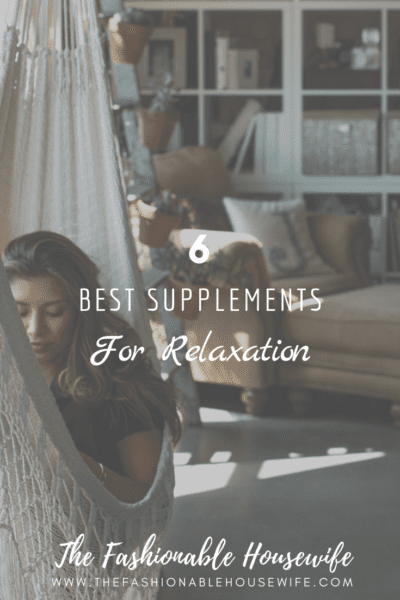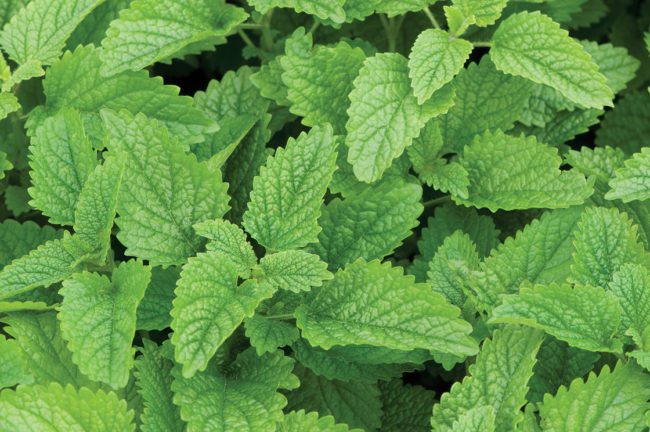
According to the American Institute of Stress, at least 73 percent of people live such stressful lives that the stress regularly produces physical or psychological symptoms. Our lives aren’t becoming less stressful; they’re increasing in stress with each passing year. Your circumstances aren’t going to change, so your best bet is to find a better way to cope. Some people use exercise, meditation or music therapy to cope with stress. Others use herbal supplementation, and there’s plenty of good research to suggest that certain supplements can, in fact, help you cope with stress by helping you relax and by improving your ability to focus.
In this article, we’re going to tell you why you need to learn to relax and give you a list some of the best supplements for relaxation and stress relief – but we’re not going to stop there. We’re going to back our recommendations with real science by referencing recent scientific studies. So, sit back and relax with us for a while; you’ve earned it.
CBD
Cannabidiol (CBD) is a legal and non-psychoactive component of the cannabis plant. It’s extracted from industrial hemp, and researchers have found that it may have several remarkable benefits including being one of the best supplements for relaxation. One of those potential benefits is that it may help you relax. In 2019, the Permanente Journal published the results of a study in which 72 patients complaining of low sleep quality or anxiety were given CBD supplementation. Out of the sample of 72 patients, 57 reported reduced anxiety and 48 reported improved sleep quality. If you think that CBD supplementation may be right for you, CBD vape pens are the best way to get your daily dose. When you inhale CBD, it enters your bloodstream in seconds – and that’s exactly what you need when you’re looking for a quick way to relax yourself. The body also uses inhaled CBD more efficiently than it uses CBD that’s consumed orally because compounds that you inhale enter your bloodstream without first being metabolized by the liver.
Ashwagandha
Ashwagandha is one of the most important medicines in the traditional Indian medical doctrine of Ayurveda. Being an adaptogen, it’s recommended by Ayurvedic practitioners for treating a wide variety of conditions – including being one of the best supplements for relaxation and anxiety.
In 2012, the Indian Journal of Psychological Medicine put ashwagandha to the test in a placebo-controlled study of 64 volunteers who complained of severe stress. Participants used ashwagandha or a placebo for 60 days. Compared to the placebo group, the patients who received ashwagandha supplementation reported lower stress and had lower levels of cortisol in their blood. While a study of 64 people is a small-scale study by clinical standards, the results of this study nevertheless suggest that ashwagandha supplementation is absolutely worth trying if you suffer from stress and anxiety.
Valerian
Valerian is a flowering plant that’s native to Europe and Asia, and its roots have been used to relieve anxiety and sleeplessness for thousands of years. The Greek physician Galen – who died about 200 years before the birth of Christ – is among the first doctors to recommend valerian as a remedy for insomnia on top of being one of the best supplements for relaxation. You can find extracts of valerian root in virtually any store that sells nutritional supplements. In 2006, the American Journal of Medicine published a systematic review of all available medical literature studying valerian and its effects on sleep. The researchers compiling the review used 16 placebo-controlled studies with more than 1,000 volunteers as the basis for their research. According to the review, the available evidence does suggest that valerian can potentially relieve insomnia with little to no risk of side effects.
Lemon Balm
Lemon balm is another herb with usage dating back hundreds of years. People use lemon balm to reduce anxiety and improve mood, and like valerian, you can find it in just about any health food store. But does it work?

In 2014, the journal Nutrients published the results of a placebo-controlled crossover study in which five participants were given both lemon balm and a placebo for stress reduction. The researchers tested the mood and cognitive function of the participants and also measured the subjects’ cortisol levels. The researchers found that lemon balm appeared to reduce cortisol levels and improve cognitive function in the test subjects, suggesting that lemon balm may have excellent potential as a natural supplement for stress relief and one of the best supplements for relaxation.
GABA
Gamma-Aminobutyric acid (GABA) is a natural neurotransmitter found within your body. It binds to your neurons, reducing their excitability. It also plays a role in other bodily functions such as digestion, reproduction and pancreatic function. Given that GABA reduces the excitability of the nerves, humans have used it as an anti-anxiety supplement for many years. Does it work? In 2006, the journal Biofactors published the results of a placebo-controlled study in which volunteers were given GABA, L-theanine or plain water. The researchers conducting the study scanned the volunteers’ brainwaves and took periodic saliva samples. The group receiving GABA showed marked changes in their brain activity levels. Alpha waves increased, and beta waves decreased. The GABA group also showed higher levels of Immunoglobin A in their saliva. The study concluded that, within an hour of administration, GABA shows the potential to relax the patient and significantly reduce anxiety which makes it one of the best supplements for relaxation.
Passionflower
Passionflower isn’t just a beautiful ornamental plant and a bearer of delicious fruit; its leaves and roots have been used for centuries in North America to treat anxiety and sleeplessness. In 2001, the Journal of Clinical Pharmacy and Therapeutics published a study that attempted to confirm the anxiolytic effect of this popular traditional remedy. The researchers conducting the study worked with 36 patients diagnosed with a generalized anxiety disorder. The two treatment options examined in the study were passionflower and the prescription anti-anxiety medication oxazepam. Two groups of patients were given either liquid passionflower extract and placebo tablets or oxazepam tablets and a placebo liquid. The researchers conducting the study found that passionflower extract and oxazepam were equally effective in treating anxiety. Although oxazepam was faster acting, it also had significant short-term side effects including work impairment. The researchers concluded that it would be wise to conduct a larger-scale trial of passionflower’s effectiveness on anxiety.



